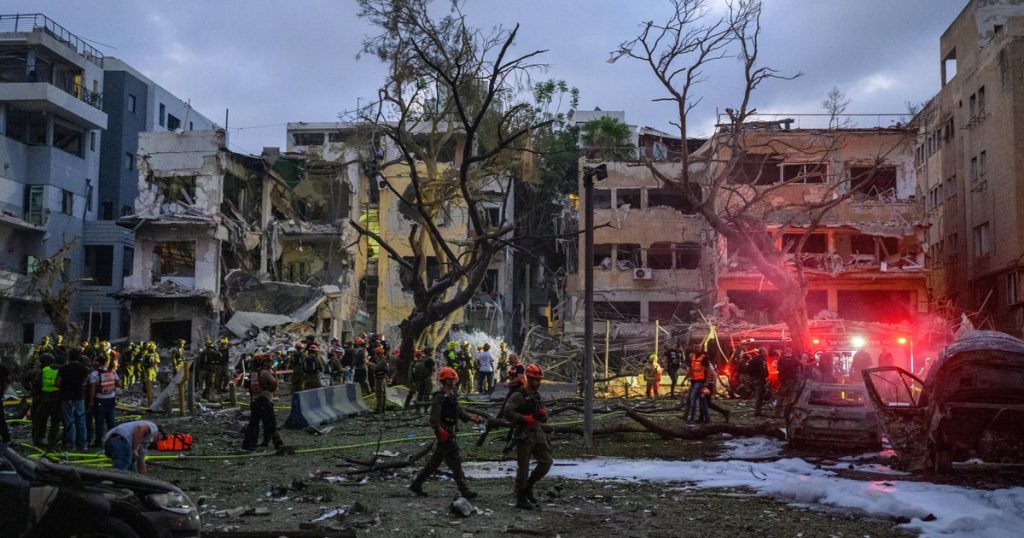In a significant escalation of diplomatic concern, the State Department has recently elevated its travel advisory for Israel to Level 4, the highest possible warning. This move comes amidst increasing tensions and hostilities in the region, specifically involving an ongoing conflict between Israel and Iran, which has led to casualties on both sides. U.S. citizens are being urged to refrain from traveling to Israel due to threats from armed conflict, terrorism, and civil unrest.
| Article Subheadings |
|---|
| 1) Overview of the Travel Advisory |
| 2) Recent Developments in the Israel-Iran Conflict |
| 3) Security Risks and Recommendations for Americans |
| 4) Implications for U.S. Citizens in Conflict Zones |
| 5) The Broader Regional Security Landscape |
Overview of the Travel Advisory
On Monday, the State Department raised its travel advisory for Israel to Level 4, cautioning U.S. citizens against any travel to the country. This advisory is primarily based on escalating tensions and conflict in the region. The directive explicitly warns that the situation could lead to unforeseen consequences and advises Americans to remain vigilant. The State Department primarily aims to ensure the safety and security of U.S. citizens in light of the unpredictable landscape in Israel.
Recent Developments in the Israel-Iran Conflict
The advisory follows a series of hostilities between Israel and Iran, which began earlier last week. Following Israel’s targeted operations against Iranian military and nuclear facilities, Iran has retaliated with missile strikes against Israeli territory, resulting in numerous casualties. As per official reports, at least 224 individuals have lost their lives as a direct result of the conflict, marking a significant escalation in violence. Israeli military officials confirm that a small number of Iranian missiles have penetrated their air defenses, resulting in a loss of life among Israeli citizens, adding urgency to the advisory issued by U.S. officials.
Security Risks and Recommendations for Americans
In its advisory, the State Department highlighted various security risks that could jeopardize the safety of Americans traveling to or residing in Israel, including the potential for unforeseen attacks. It specifically mentions the threat of missile and UAV intrusions, as well as acts of terror targeting civilians in popular areas such as markets and transportation hubs. The advisory underscores that Americans in the region should take necessary precautions to enhance their security awareness, urging them to remain vigilant and alert for potential threats that could occur without warning.
Implications for U.S. Citizens in Conflict Zones
The travel warning extends beyond Israel to include the West Bank and Gaza Strip, where instances of terrorism and violence are prevalent. The State Department prohibits U.S. citizens from traveling to these areas, citing severe risks. Moreover, the advisory notes that U.S. government assistance may not be available in these regions, particularly in Gaza, where the security situation has become increasingly perilous. Quoting from the advisory, “The U.S. government is unable to provide routine or emergency consular services to U.S. citizens in Gaza as U.S. government employees are prohibited from traveling there,” indicates the gravity of the situation.
The Broader Regional Security Landscape
The State Department’s advisory reflects a broader concern regarding the volatile security environment in the Middle East. With terrorist organizations and extremists posing significant threats in Israel and its neighboring territories, U.S. citizens are perceived as vulnerable targets. As tensions rise, the possibility of violence spilling over into other regions of the Middle East remains high. The evolving situation warrants continuous monitoring, particularly given the risks associated with accompanying diplomatic and military maneuvers by various countries in the region.
| No. | Key Points |
|---|---|
| 1 | The State Department has elevated the travel advisory for Israel to Level 4, urging U.S. citizens not to travel due to rising conflict and unrest. |
| 2 | Current hostilities between Israel and Iran have resulted in significant casualties, including over 200 deaths in recent military exchanges. |
| 3 | Security risks include potential missile strikes and terrorist threats, prompting U.S. citizens to adopt heightened vigilance during their stay. |
| 4 | U.S. citizens are advised against travel to Gaza and the West Bank due to the increased risk of terrorism and civil unrest. |
| 5 | The announcement signals a considerable concern regarding the unstable security landscape in the Middle East and its effects on U.S. citizens abroad. |
Summary
The elevated travel advisory for Israel not only reflects the immediate risks associated with the ongoing conflict but also highlights the broader concerns regarding U.S. citizens’ safety abroad. The dynamics of the current situation demand urgent attention, and measures must be taken to ensure the safety of Americans in conflict zones. The rapid developments necessitate vigilant monitoring, indicating a complex and potentially dangerous environment for U.S. nationals.
Frequently Asked Questions
Question: What is the significance of the travel advisory raised to Level 4?
The Level 4 travel advisory indicates extreme levels of risk, warning travelers against all travel to Israel, highlighting threats from armed conflict and terrorism.
Question: What specific areas are highlighted as dangerous for U.S. citizens?
The West Bank and Gaza Strip are highlighted as particularly dangerous due to ongoing terrorism and civil unrest, alongside parts of Israel during the current conflict.
Question: What precautions should Americans take if they are in Israel or nearby regions?
Americans are advised to remain vigilant, increase their security awareness, and be prepared for the possibility of rapid developments that could affect their safety.


